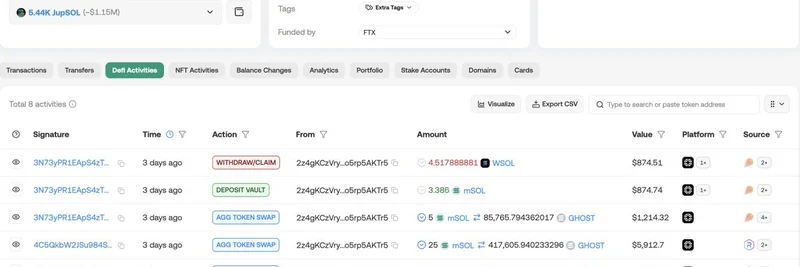In the ever-evolving world of cryptocurrency, it's fascinating to see how narratives change over time. Back in the early days, the dream was all about leveraging cryptography to create unstoppable, private internet money – think Bitcoin's origins or the rise of privacy-focused coins like Monero. Fast forward to today, and the vibe has shifted dramatically, as pointed out in a recent tweet by Mert, CEO of Helius Labs.
Mert's post captures this irony perfectly: "crypto then: we are going to use cryptography to make unstoppable private internet money cryptography finally used to make private internet money crypto now: wow this must be a scam because price went up even though
The Irony of Crypto Progress
What Mert is highlighting here is a classic case of cognitive dissonance in the crypto space. We started with grand visions of decentralization and privacy, using advanced cryptography to build systems that governments and corporations couldn't touch. Now, when projects actually deliver on that promise – especially if they see a price surge – the immediate reaction from some corners is suspicion. "It must be a scam," they say, often because their own investments (or "bags," in crypto slang) aren't performing as well.
This mindset is particularly rampant in the meme token ecosystem, where volatility is the name of the game. Meme coins like Dogecoin or newer Solana-based tokens often explode in value based on community hype, viral marketing, or even just a clever narrative. But if you're not holding them, it's easy to label the pump as manipulative or fraudulent. Mert's call to "seek god" is a humorous jab at this hypocrisy, urging folks to reflect on their biases.
Privacy in the Meme Token Era
Privacy remains a hot topic in blockchain, especially with advancements like zero-knowledge proofs (ZK) and fully homomorphic encryption (FHE). On Solana, where Helius Labs provides top-tier RPCs, data tools, and trading infrastructure, these technologies are enabling new waves of private transactions. Yet, as Mert implies, even genuine innovations can get dismissed if they disrupt the status quo or outperform established favorites.
For meme token enthusiasts, this tweet serves as a reminder to look beyond price action. Is the project using real cryptography for privacy? Does it solve a pain point in the ecosystem? Tokens like those building on Solana's high-speed network often incorporate privacy features to attract users wary of on-chain transparency. But the community's knee-jerk reactions can stifle adoption.
Lessons for Blockchain Practitioners
If you're diving into meme tokens or broader crypto, Mert's observation encourages a more balanced view. Instead of envy-driven skepticism, focus on fundamentals. Research the tech, the team (Helius Labs, for instance, is a powerhouse in Solana dev tools), and the community. Privacy isn't just a buzzword – it's the foundation of what crypto promised from the start.
In a space where fortunes flip overnight, staying grounded in those original ideals can help you navigate the noise. Whether you're trading memes or building on blockchain, remember: true innovation often looks like a "scam" to those left behind.
What do you think – has crypto lost its way, or is this just growing pains? Share your thoughts in the comments below, and keep an eye on emerging privacy-focused meme projects that might just redefine the game.



